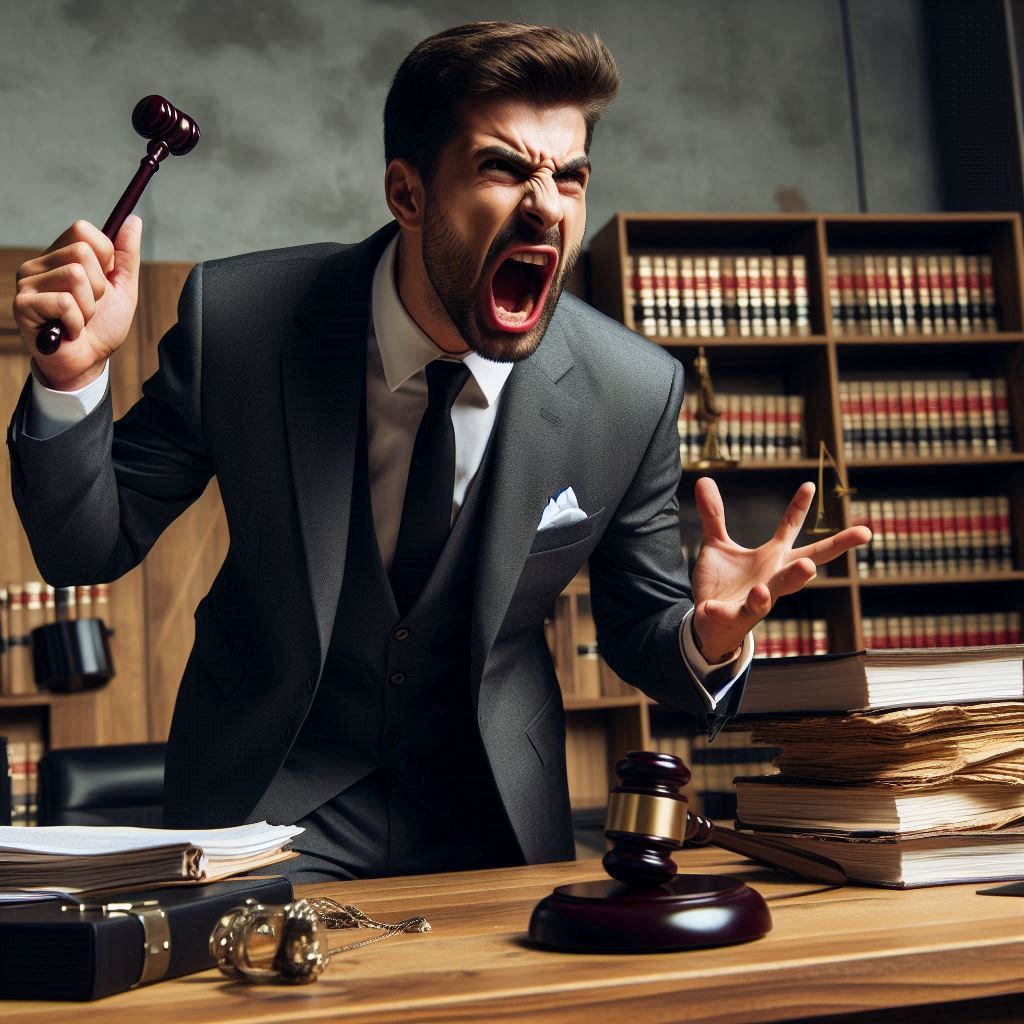Introduction
Public defenders play a crucial role in the U.S. legal system.
They provide legal representation to individuals who cannot afford private attorneys.
This ensures that everyone, regardless of financial status, receives a fair trial.
Public defenders uphold the principles of justice and equality, often working under challenging conditions with limited resources.
The importance of public defenders cannot be overstated.
They ensure the right to legal representation is accessible to all.
Without public defenders, many would face the legal system alone, leading to unjust outcomes.
They advocate for the marginalized and work tirelessly to defend the rights of the accused.
Their commitment to justice helps maintain the integrity of the legal system.
Transitioning to discussing famous public defenders in U.S.
legal history, we see that several have made significant impacts.
These individuals have set precedents, championed civil rights, and changed the course of legal history.
Their dedication and achievements highlight the vital role of public defenders in shaping a fair and just society.
Throughout U.S. history, notable public defenders have stood out for their exceptional contributions.
They have taken on landmark cases and fought for justice in the face of adversity.
Their stories serve as inspiration and underscore the importance of public defenders in our legal system.
Clarence Darrow
Background Information on Clarence Darrow
Clarence Darrow, a prominent American lawyer, made a significant mark in the field of criminal defense.
Born in 1857 in Ohio, Darrow grew up with a strong sense of justice and a passion for defending the underdog.
He began his legal career in Chicago, where he quickly gained a reputation for his eloquence, wit, and unyielding commitment to his clients.
Notable Cases Defended by Clarence Darrow
One of Darrow’s most notable cases was the defense of Leopold and Loeb in 1924.
Nathan Leopold and Richard Loeb, two wealthy and highly intelligent teenagers, were charged with the kidnapping and murder of 14-year-old Bobby Franks.
The case garnered national attention due to the gruesome nature of the crime and the backgrounds of the defendants.
Darrow’s defense focused on the psychological state of Leopold and Loeb, arguing that their actions were influenced by their abnormal upbringing and intellectual superiority.
His passionate plea spared them the death penalty, securing life sentences instead.
Another landmark case was the Scopes “Monkey” Trial in 1925.
John T. Scopes, a high school teacher in Tennessee, was charged with violating state law by teaching evolution.
Darrow defended Scopes, challenging the law’s constitutionality and advocating for academic freedom.
The trial became a national spectacle, pitting modern science against traditional religious beliefs.
Although Scopes was found guilty, Darrow’s arguments highlighted the importance of intellectual freedom and the separation of church and state.
Darrow also made headlines with the defense of Bill Haywood and other leaders of the Western Federation of Miners in 1907.
They were accused of orchestrating the murder of a former Idaho governor.
Darrow argued that the charges were politically motivated and aimed at crushing the labor movement.
His defense resulted in the acquittal of his clients, bolstering the labor movement and affirming the right to organize.
Impact of His Work on the Field of Criminal Defense
Darrow’s impact on the field of criminal defense extends beyond his high-profile cases.
He was a fierce opponent of the death penalty, advocating for its abolition throughout his career.
His arguments against capital punishment emphasized the potential for wrongful convictions and the moral implications of state-sanctioned executions.
Darrow’s work laid the foundation for modern debates on the death penalty and influenced subsequent legal reforms.
Darrow’s legacy also includes his contributions to the development of the insanity defense.
He often argued that criminal behavior could stem from psychological disorders, challenging the notion of inherent criminality.
His approach humanized defendants and underscored the need for a more compassionate and nuanced understanding of criminal behavior.
In short, Clarence Darrow’s background, notable cases, and enduring impact on criminal defense make him a pivotal figure in U.S. legal history.
His dedication to justice, advocacy for the marginalized, and innovative legal strategies continue to inspire and shape the practice of criminal defense.
Darrow’s work remains a testament to the power of passionate advocacy and the ongoing pursuit of a fairer and more just legal system.
Read: Evolution of the Legal Profession in the USA: A Timeline
Thurgood Marshall
Brief Overview of Thurgood Marshall’s Career as a Public Defender
Thurgood Marshall, a groundbreaking American lawyer, began his career with a profound commitment to justice and equality.
Born in 1908 in Baltimore, Maryland, Marshall grew up during a time of intense racial segregation.
He attended Howard University School of Law, where he was mentored by Charles Hamilton Houston, who greatly influenced his approach to civil rights law.
Marshall’s early career as a public defender and civil rights attorney set the stage for his lifelong fight against racial injustice.
Landmark Cases That Thurgood Marshall Handled as a Public Defender
One of Marshall’s earliest and most significant cases was Murray v.
Pearson in 1936.
Marshall represented Donald Gaines Murray, an African American applicant who was denied admission to the University of Maryland School of Law due to his race.
Marshall argued that the school’s segregation policy violated the Fourteenth Amendment’s Equal Protection Clause.
The court ruled in favor of Murray, marking a crucial victory in the fight against educational segregation and setting a precedent for future civil rights cases.
Marshall’s most famous case as a public defender was Brown v. Board of Education of Topeka in 1954.
As the lead attorney for the NAACP Legal Defense and Educational Fund, Marshall argued before the Supreme Court that state-sponsored segregation in public schools was unconstitutional.
He presented compelling evidence showing the detrimental effects of segregation on African American children.
The Supreme Court’s unanimous decision in favor of Brown overturned the “separate but equal” doctrine established by Plessy v.
Ferguson, declaring that segregated schools were inherently unequal.
This landmark ruling was a monumental step forward in the struggle for civil rights and educational equality in America.
Another notable case was Smith v.Allwright in 1944.
Marshall successfully challenged the Texas Democratic Party’s practice of excluding African Americans from primary elections.
The Supreme Court’s decision in favor of Smith effectively dismantled the white primary system, significantly advancing voting rights for African Americans and strengthening the democratic process.
Transition into His Later Achievements as a Supreme Court Justice
Thurgood Marshall’s success as a public defender and civil rights attorney propelled him to even greater achievements.
In 1961, President John F. Kennedy appointed Marshall to the U.S. Court of Appeals for the Second Circuit.
In 1965, President Lyndon B. Johnson appointed him as the first African American Solicitor General of the United States.
Marshall’s exceptional legal acumen and dedication to justice earned him a nomination to the Supreme Court in 1967, where he became the first African American Justice.
As a Supreme Court Justice, Marshall continued to champion civil rights, equal protection, and individual liberties.
He authored numerous influential opinions and dissents, advocating for the rights of marginalized communities and defending the principles of justice and equality.
His tenure on the Supreme Court solidified his legacy as a tireless advocate for civil rights and social justice.
All in all, Thurgood Marshall’s career as a public defender, highlighted by landmark cases like Brown v. Board of Education, laid the groundwork for his historic achievements as a Supreme Court Justice.
His unwavering commitment to justice and equality profoundly shaped American legal history and continues to inspire generations of lawyers and activists.
Read: Balancing Life: How US Lawyers Manage Stress and Burnout
Ruth Bader Ginsburg
Ruth Bader Ginsburg, fondly known as RBG, is a prominent figure in U.S. legal history.
Before her appointment to the U.S. Supreme Court, Ginsburg had a successful career as a public defender.
Ginsburg’s Early Career as a Public Defender
- After graduating from law school, Ginsburg began her legal career as a clerk.
- She then transitioned to academia, teaching at Rutgers Law School and Columbia Law School.
- In the 1970s, Ginsburg co-founded the Women’s Rights Project at the American Civil Liberties Union (ACLU).
- As part of her work at the ACLU, Ginsburg litigated several groundbreaking gender discrimination cases.
Significant Cases Defended by Ginsburg as a Public Defender
- Ginsburg argued six landmark cases on gender equality before the U.S. Supreme Court.
- One of her most famous cases was Reed v. Reed, which challenged gender-based classifications under the Equal Protection Clause.
- Another significant case was Weinberger v. Wiesenfeld, where Ginsburg represented a widowed father denied survivor benefits.
- Ginsburg’s strategic legal advocacy paved the way for gender equality laws and protections in the United States.
Discussion of Her Impact on the Legal Profession as a Whole
Ruth Bader Ginsburg’s legacy as a public defender extends far beyond her individual cases. She has left a lasting impact on the legal profession in the following ways:
- She was a trailblazer in advancing women’s rights and gender equality through her legal advocacy.
- Ginsburg’s strategic approach to litigation laid the groundwork for future civil rights attorneys and activists.
- Her commitment to justice and equality inspired a new generation of lawyers to fight for social change.
- Ginsburg’s dedication to public service and defense work serves as a model for aspiring attorneys to follow.
In essence, Ruth Bader Ginsburg’s early career as a public defender was instrumental in shaping her legacy as a champion of justice and equality.
Her significant cases and lasting impact on the legal profession continue to inspire and empower advocates for social change.
Read: Case Law Basics: Noteworthy US Legal Precedents

Byan Stevenson
Background Information on Bryan Stevenson and His Work with the Equal Justice Initiative
Bryan Stevenson is a renowned public defender and human rights advocate.
Born in 1959 in Milton, Delaware, Stevenson dedicated his life to fighting for justice and equality.
He graduated from Harvard Law School and Harvard Kennedy School, where he earned both his J.D. and a Master‘s in Public Policy.
In 1989, Stevenson founded the Equal Justice Initiative (EJI) in Montgomery, Alabama, a nonprofit organization committed to providing legal representation to those who have been wrongfully convicted, denied a fair trial, or unfairly sentenced.
Under Stevenson’s leadership, EJI has become a powerful force for criminal justice reform, advocating for the rights of marginalized and disadvantaged individuals.
Notable Cases That Stevenson Has Handled as a Public Defender
One of Stevenson’s most notable cases involved Walter McMillian, an African American man wrongfully convicted of murder in Alabama.
McMillian was sentenced to death despite evidence proving his innocence.
Stevenson took on McMillian‘s case in the late 1980s, uncovering prosecutorial misconduct and police corruption.
After years of tireless work, Stevenson successfully proved McMillian’s innocence, and he was released from death row in 1993.
This case highlighted the deep flaws in the criminal justice system and showcased Stevenson‘s unwavering commitment to justice.
Another significant case handled by Stevenson was that of Anthony Ray Hinton.
Hinton spent nearly 30 years on death row for two murders he did not commit.
Stevenson took on Hinton‘s case, challenging the inadequate representation Hinton received during his trial and the lack of credible evidence against him.
In 2015, the U.S. Supreme Court unanimously overturned Hinton‘s conviction, and he was subsequently released.
This victory was a testament to Stevenson‘s dedication to fighting for the wrongfully convicted and his relentless pursuit of justice.
Stevenson’s Advocacy for Criminal Justice Reform
Beyond individual cases, Bryan Stevenson has been a leading advocate for criminal justice reform.
He has worked to address systemic issues such as racial bias, excessive punishment, and the treatment of children in the criminal justice system.
Stevenson played a pivotal role in the Supreme Court’s decision in Miller v. Alabama (2012), which banned mandatory life-without-parole sentences for juveniles.
This landmark ruling recognized the inherent potential for rehabilitation and growth in young offenders.
Stevenson‘s advocacy extends to public education and raising awareness about historical injustices.
He spearheaded the creation of the National Memorial for Peace and Justice and the Legacy Museum in Montgomery, Alabama.
These institutions commemorate victims of lynching and educate the public about the legacy of slavery, segregation, and racial inequality in the United States.
Stevenson’s work emphasizes the importance of confronting and understanding historical injustices to create a more just and equitable society.
Generally, Bryan Stevenson’s career as a public defender and his work with the Equal Justice Initiative have profoundly impacted the U.S. legal system.
Through notable cases and tireless advocacy for criminal justice reform, Stevenson has championed the rights of the marginalized and wrongfully convicted.
His dedication to justice and equality continues to inspire and drive meaningful change in the fight for a fairer legal system.
Read: Big Law vs. Small Firms: Which Suits Your Ambition?
Gideon v. Wainwright
Overview of the Landmark Supreme Court Case Gideon v. Wainwright
Gideon v. Wainwright is a landmark Supreme Court case decided in 1963.
The case involved Clarence Earl Gideon, a poor drifter accused of felony theft in Florida.
Gideon requested a court-appointed lawyer because he could not afford one.
The trial judge denied his request, citing Florida state law that only provided counsel for indigent defendants in capital cases.
Gideon represented himself in trial and was convicted.
From prison, he handwrote a petition to the Supreme Court, arguing that his constitutional right to counsel had been violated.
The Supreme Court agreed to hear Gideon‘s case.
In a unanimous decision, the Court ruled that the Sixth Amendment guarantees the right to legal counsel for all defendants charged with a serious offense, regardless of their ability to pay.
The Court stated that a fair trial cannot be guaranteed without adequate legal representation, making it a fundamental right.
Impact of This Case on the Right to Counsel for Indigent Defendants
Gideon v. Wainwright significantly impacted the criminal justice system.
The ruling established that states are required to provide attorneys for defendants who cannot afford to hire their own.
This decision reinforced the principle that justice should not be dependent on a person’s financial status.
The case led to the creation and expansion of public defender systems across the United States, ensuring that indigent defendants receive fair representation in court.
The decision emphasized the importance of a fair trial and due process.
It highlighted the need for competent legal representation as a crucial aspect of the justice system.
By affirming the right to counsel, the case helped protect the rights of marginalized individuals and promote equality under the law.
Connection to the Work of Famous Public Defenders in U.S. Legal History
Gideon v. Wainwright‘s legacy is closely tied to the work of famous public defenders.
Lawyers like Bryan Stevenson and Clarence Darrow have dedicated their careers to ensuring justice for the indigent and marginalized.
Stevenson‘s work with the Equal Justice Initiative mirrors the principles established in Gideon.
His commitment to defending those who cannot afford legal representation continues to uphold the precedent set by the Supreme Court.
Clarence Darrow‘s advocacy for the underprivileged also aligns with the values championed in Gideon.
Darrow‘s defense of unpopular clients and his fight for justice echo the case‘s impact on the right to counsel.
The work of these public defenders exemplifies the ongoing struggle for a fair and equitable legal system.
Ultimately, Gideon v. Wainwright transformed the legal landscape by ensuring the right to counsel for indigent defendants.
The case‘s legacy continues through the efforts of dedicated public defenders who strive to provide justice for all, regardless of their financial circumstances.
The ruling stands as a testament to the importance of legal representation in achieving a fair and just society.
Transform Your Career Today
Unlock a personalized career strategy that drives real results. Get tailored advice and a roadmap designed just for you.
Start NowChallenges Faced by Public Defenders
Public defenders in the United States play a crucial role in the criminal justice system by providing legal representation to individuals who cannot afford private attorneys.
However, they face numerous challenges in fulfilling their duties effectively.
Discussion of Systemic Issues Within the Criminal Justice System
One of the major challenges faced by public defenders is the systemic issues within the criminal justice system.
This includes racial disparities, overcriminalization, and mass incarceration.
The system is often biased against marginalized communities, making it difficult for public defenders to ensure fair outcomes for their clients.Another significant challenge is the lack of resources for public defender offices.
Due to limited funding, public defenders often have heavy caseloads, leading to insufficient time to provide quality representation to each client.
This lack of resources can also result in inadequate training and supervision for public defenders, further impacting the quality of legal services they can offer.One of the major challenges faced by public defenders is the systemic issues within the criminal justice system.
This includes racial disparities, overcriminalization, and mass incarceration.
The system is often biased against marginalized communities, making it difficult for public defenders to ensure fair outcomes for their clients.
Lack of Resources for Public Defender Offices
Another significant challenge is the lack of resources for public defender offices.
Due to limited funding, public defenders often have heavy caseloads, leading to insufficient time to provide quality representation to each client.
This lack of resources can also result in inadequate training and supervision for public defenders, further impacting the quality of legal services they can offer.
Advocacy Efforts to Improve Conditions for Public Defenders
Despite these challenges, there have been advocacy efforts to improve conditions for public defenders.
Organizations such as the National Legal Aid and Defender Association (NLADA) and the American Civil Liberties Union (ACLU) work to raise awareness about the importance of public defense and advocate for increased funding and resources for public defender offices.
They also push for policy changes to address systemic issues within the criminal justice system and promote equal access to justice for all individuals.
In a nutshell, public defenders in the U.S. face several challenges in their work, including systemic issues within the criminal justice system, lack of resources, and heavy caseloads.
However, advocacy efforts continue to work towards addressing these challenges and improving conditions for public defenders to ensure that everyone has access to competent legal representation.
See Related Content: Educational Requirements for Litigation Support Specialists
Conclusion
Recap of the Significance of Famous Public Defenders in U.S. Legal History
Famous public defenders have played pivotal roles in shaping the U.S. legal system.
Their tireless advocacy has ensured justice for many who couldn’t afford representation.
Clarence Darrow, Thurgood Marshall, and Bryan Stevenson exemplify the dedication and impact of public defenders.
Through landmark cases and relentless efforts, they have highlighted the importance of legal representation for all.
Call to Action for Supporting Public Defenders and the Work They Do
Supporting public defenders is crucial for a fair and just legal system.
They often work under challenging conditions, facing heavy caseloads and limited resources.
Public defenders need our support to continue their vital work.
Consider donating to organizations like the Equal Justice Initiative or volunteering your time to support local public defender offices.
Encouragement for Readers to Learn More About the Impact of Public Defenders in the Legal System
Learning about the impact of public defenders enhances our understanding of the justice system.
Their stories reveal the struggles and triumphs in the fight for equal justice.
Reading about landmark cases like Gideon v. Wainwright and the work of defenders like Thurgood Marshall can inspire a deeper appreciation for their contributions.
[E-Books for Sale]
The Big Book of 500 High-Paying Jobs in America: Unlock Your Earning Potential
$19.99 • 500 High-Paying Jobs • 330 pages
Explore 500 high-paying jobs in America and learn how to boost your career, earn more, and achieve success!
See All 500 High-Paying Jobs of this E-Book
1001 Professions Without a Degree: High-Paying American Jobs You Can Start Now
$19.99 • 1001 Professions Without a Degree • 174 pages
Discover 1001 high-paying jobs without a degree! Unlock career tips, skills, and success strategies for just $19.99!




